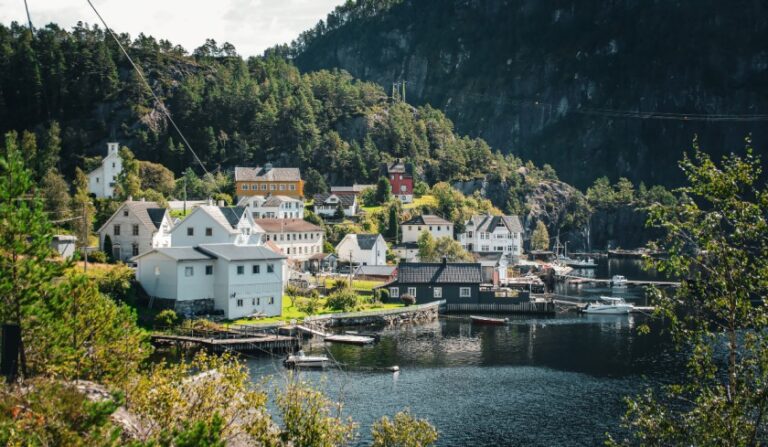Spain is more than a football-loving nation—it’s a global epicenter of the sport. From Madrid to Barcelona and beyond, Spanish football clubs are known for their rich history, passionate fanbases, and world-class performances. Whether it’s the flair of tiki-taka, the intensity of rivalries, or the pride of local traditions, Spanish football defines excellence.
Here’s a deep dive into the most popular and successful football clubs in Spain that continue to shape the beautiful game.
Why Spain Leads in Football Excellence
Spanish football clubs are famous not only for winning titles but also for producing some of the world’s most talented players. What makes a Spanish club “top-tier” often comes down to:
- Trophy history: La Liga, Copa del Rey, and European competitions.
- Recent performance: Consistency in domestic and international tournaments.
- Financial strength: Sponsorships, revenues, and global fanbase.
- Cultural identity: Deep roots, traditions, and passionate rivalries.
Now, let’s explore the giants of Spanish football and what makes each club extraordinary.
1. Real Madrid CF: The Standard of Greatness
Location: Madrid
No discussion about football is complete without mentioning Real Madrid. Known as Los Blancos, this club is arguably the most successful in history. With a record number of La Liga and Champions League titles, Real Madrid embodies excellence both on and off the pitch.
From the Galácticos era featuring Zidane, Ronaldo, and Beckham to the new generation of Vinícius Jr. and Bellingham, Real Madrid continues to dominate global football. Their Santiago Bernabéu Stadium is not just a ground—it’s a temple for football lovers worldwide.
Beyond trophies, Real Madrid represents ambition, tradition, and global prestige.
2. FC Barcelona: The Spirit of Catalonia
Location: Barcelona
Barcelona isn’t just a football club—it’s a symbol of Catalan pride and creativity. Known for its motto “Més que un club” (More than a club), FC Barcelona has redefined how football is played and perceived.
With its legendary La Masia academy producing icons like Messi, Xavi, and Iniesta, Barcelona’s contribution to world football is unmatched. The tiki-taka playing style—short, quick passes and intelligent movement—became the club’s identity and inspired football across generations.
Even through financial challenges and squad transitions, Barcelona remains a global brand that blends artistry, loyalty, and innovation.
3. Atlético Madrid: The Resilient Warriors
Location: Madrid
If Real Madrid represents glamor and Barcelona embodies beauty, Atlético Madrid stands for grit and heart. Under coach Diego Simeone, Los Rojiblancos have built a reputation for disciplined defending, counter-attacking brilliance, and relentless determination.
Atlético has disrupted the long-standing Madrid-Barça duopoly by winning La Liga titles and performing consistently in Europe. Their passionate supporters and the electric atmosphere at the Wanda Metropolitano stadium reflect a club that thrives on spirit and unity.
4. Sevilla FC: The Europa League Kings
Location: Seville
Sevilla FC has become synonymous with success in European competitions—particularly the UEFA Europa League. Their consistent performance, smart recruitment, and attacking style have made them one of Spain’s most respected clubs.
The Seville Derby against Real Betis is among Spain’s most vibrant rivalries, known for unmatched energy and city pride. Sevilla’s rise over the past two decades shows that smart management and vision can challenge even the biggest names.
5. Valencia CF: Tradition Meets Ambition
Location: Valencia
Valencia CF has enjoyed both highs and lows but remains one of Spain’s historic football powerhouses. The club’s passionate fanbase at Mestalla Stadium and its commitment to developing local talent have made it a key figure in Spanish football.
Valencia’s golden era in the early 2000s, when they reached consecutive Champions League finals, proved their capability to compete at the highest level. While financial and managerial challenges have slowed their pace, the club’s heritage remains strong.
6. Athletic Bilbao: Pride of the Basque Country
Location: Bilbao
Athletic Bilbao stands apart in the football world for its unique policy—fielding only Basque-born or Basque-trained players. Despite this restriction, the club has maintained top-tier status in Spanish football, which is a testament to their exceptional youth development and community connection.
Their fierce rivalry with Real Sociedad, known as the Basque Derby, adds another dimension to Spain’s football culture. Athletic’s philosophy celebrates identity, loyalty, and respect—values that define their remarkable story.
7. Real Sociedad: A Rising Force
Location: San Sebastián
Real Sociedad has been quietly building a strong reputation for intelligent football and youth development. Their focus on homegrown players and tactical discipline has brought them consistent success in recent La Liga seasons.
They play attractive football, have a dedicated fanbase, and continue to challenge bigger clubs with limited resources. Real Sociedad represents the new wave of smart, modern football in Spain.
8. Real Betis: Passion and Style
Location: Seville
Real Betis is known for its attacking flair and the passionate spirit of its fans. Sharing Seville with rivals Sevilla FC, Betis embodies joy, culture, and community connection. Their vibrant green-and-white colors are a symbol of Andalusian pride.
The club has made significant progress in recent years, competing in European tournaments and attracting top talent. Real Betis proves that Spanish football’s magic extends far beyond its biggest cities.
9. Villarreal CF: The Yellow Submarine’s Journey
Location: Villarreal
Villarreal’s rise from a small-town club to European champions is a remarkable football story. Nicknamed The Yellow Submarine, they captured hearts by winning the UEFA Europa League and regularly competing in European competitions.
Their success stems from a mix of strategic management, investment in youth, and a never-give-up mentality. Villarreal demonstrates that even smaller clubs can achieve greatness with the right vision.
10. Girona FC: The New Challenger
Location: Girona
Girona is one of Spain’s newest sensations. In recent seasons, they’ve impressed everyone with their fearless, attacking style and smart team building. Their climb to the top of La Liga standings shows that Spanish football continues to evolve and produce exciting stories.
Girona’s rise represents hope for smaller clubs that dream big and dare to challenge traditional giants.
The Rivalries That Define Spain
Spanish football’s intensity is magnified by its rivalries, each steeped in tradition and emotion:
- El Clásico: Real Madrid vs Barcelona – the biggest football rivalry in the world.
- Madrid Derby: Real Madrid vs Atlético Madrid – city pride and determination collide.
- Seville Derby: Sevilla vs Real Betis – passion and culture at their peak.
- Basque Derby: Athletic Bilbao vs Real Sociedad – loyalty, respect, and regional pride.
These rivalries bring millions of fans together, shaping not just games but Spanish identity itself.
Spanish Football: A Global Legacy
From the golden generation of players to tactical innovation and iconic clubs, Spain continues to influence world football. The country’s balance between tradition and progress keeps it at the center of the football universe.
Whether you admire the dominance of Real Madrid, the artistry of Barcelona, or the heart of Atlético Madrid, Spanish football offers something for every kind of fan.
Final Thoughts
Spain’s football clubs are not just teams—they are living institutions that unite people, inspire generations, and define excellence. From the giants that rule Europe to the smaller clubs that dream big, every Spanish club contributes to a story of pride, identity, and unbreakable passion.
Visit The Business Vision Magazine For More Articles






